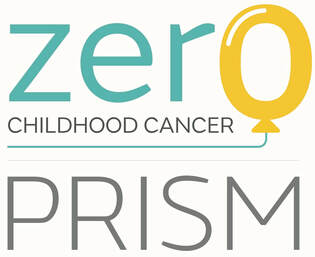|
The PRISM precision medicine trial uses novel technologies (e.g. genomic testing, in vitro/in vivo drug testing) to identify individualised therapies for patients with high-risk childhood cancers. The testing and analyses are complex, and patients and families might find it difficult to understand.
‘PRISM-Impact’ aims to better understand families’ attitudes toward, and the impact of, personalised therapy in childhood cancer. We want to explore families’ and healthcare professionals’ hopes, expectations and concerns regarding the PRISM trial. We also want to analyse the psychosocial impact of, and families’ satisfaction with, having enrolled in PRISM. |
Who can participate?Patients aged below 21 years who are diagnosed with a high-risk cancer (estimated survival rate <30%), may be eligible for the PRISM trial. All parents, as well as patients aged >12 years who are part of PRISM, may also participate in PRISM-Impact. Healthcare professionals at each participating site are eligible to participate in an annual interview.
|
What does participation involve?Patients and parents who decide to participate in PRISM-Impact complete a questionnaire after enrolling in PRISM (T0), and another questionnaire after receiving their PRISM results (T1). Parents also complete follow-up questionnaires annually up to 5 years from enrolment (T2-T6). Parents may also choose to participate in an optional telephone interview where we ask more in-depth questions about their experiences with PRISM.
|
How is PRISM-Impact supported?PRISM-Impact is supported by the Zero Childhood Cancer National Personalised Medicine Program for children with high risk cancer, Luminesce Alliance – Innovation for Children’s Health. Luminesce Alliance - Innovation for Children’s Health, is a not-for-profit cooperative joint venture between the Sydney Children’s Hospitals Network, the Children’s Medical Research Institute, and the Children’s Cancer Institute and by the Behavioural Sciences Unit.
|
Additional information
Please contact [email protected] if you would like further information about PRISM-Impact.
Please contact [email protected] if you would like further information about PRISM-Impact.


